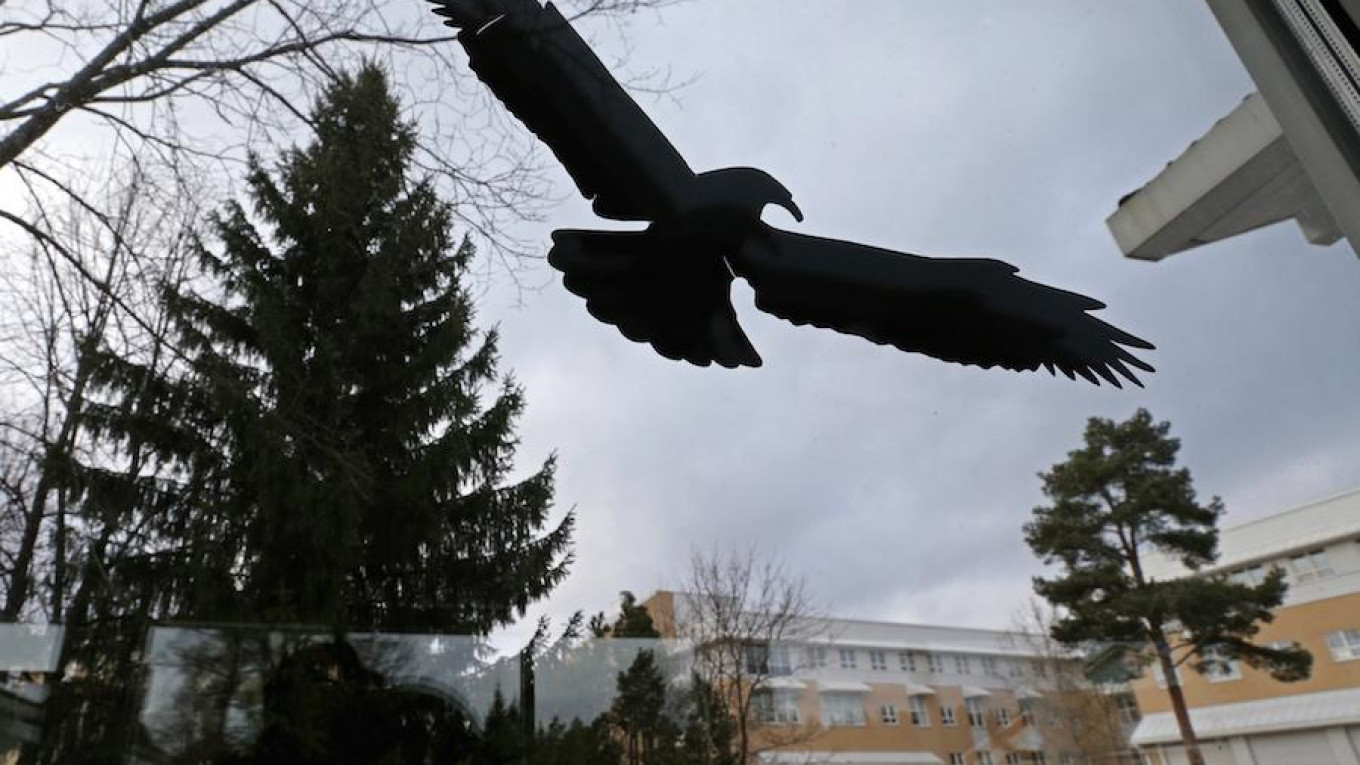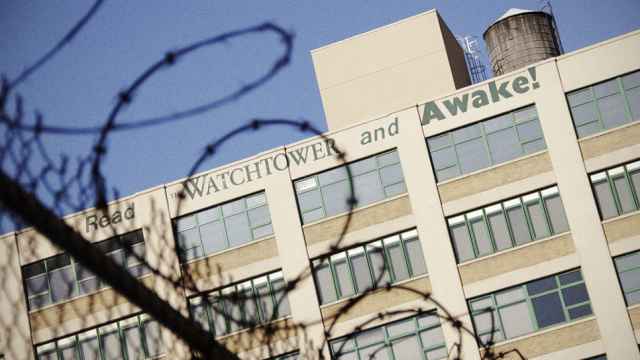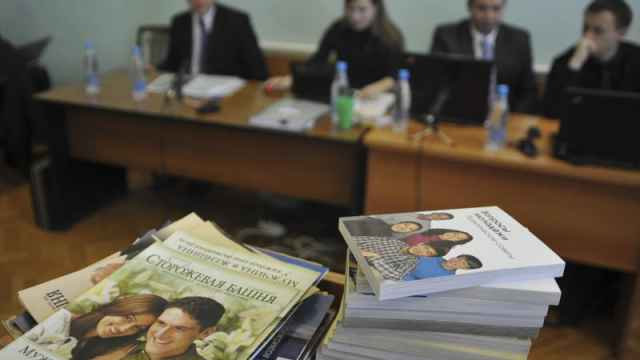The low-rise building, located in Moscow’s leafy suburbs, has the look and feel of being abandoned. Its lower floors are shrouded in darkness. The doors are shuttered. The only clue that anything might be amiss is the recorded piano music that drifts out from the upper floors, audible to anybody listening carefully enough.
Inside the building, out of sight on the second floor, a group of people are meeting. At first glance, the crowd seems innocuous. Some sit with children; many are elderly. They pray, read the Bible, and sing.
In the eyes of the Russian government, each is an extremist threat.
The group represents just a handful of the country’s estimated 175,000 Jehovah’s Witnesses. On April 20, the group was labeled extremist by Russia’s Supreme Court, a description it now shares with groups like Islamic State.*
Ever since the ruling, Russia’s Jehovah’s Witnesses have been in limbo, with the umbrella organization effectively banned from operating. But across the country, believers are still organizing weekly meetings.
Some in the congregation do not know if the meetings at their Kingdom Hall are legal. One believer, who asked to be identified under the pseudonym Sasha, insisted the informal meetings were covered under the Russian constitution, and its provisions to protect believers’ right of assembly.
Recent developments would, however, suggest that the Russian state views things differently.
On May 25, Danish national Dennis Christensen was arrested on extremism charges after attending labeled meeting in Oryol. Another man in the remote town of Uchaly was fined for organizing gatherings in a rented room on May 18. On May 24, in the Komi republic, a Jehovah’s Witnesses’ meeting hall was attacked with a Molotov cocktail.
With government pressure likely to continue or even worsen, more families are staying away from official meetings. Some are considering emigration. Believers are starting to avoid using words online which could identify their faith.
Ivan, another member of the congregation, told The Moscow Times that friends and neighbors ask if he is a member of a forbidden sect.
“Eventually I realized that the best response was to ask them what they think,” he says. “More often than not, they say it’s a shame.”
The group has pinned its hopes on an appeal submitted to Russia’s Supreme Court on May 20. Lawyers acting for the group say the appeal will succeed so long as Russia follows its own laws.
“Jesus himself was persecuted. We will not compromise.”
“We have grounds for the unconditional cancellation of the Supreme Court’s decision,” says Anton Omeltchenko, a lawyer on the case. “If the appeal is successful, it will confirm that Jehovah’s Witnesses have been subjected to discrimination. If it fails, it’s evidence that this is a politically-motivated persecution.”
While Omeltchenko is optimistic, evidence suggests Russia’s controversial anti-extremism laws are being more rigorously applied. According to the Center for Economic and Political Reforms, the number of convictions rose from 137 to 414 between 2011 and 2015.
The number of extremism cases against Jehovah’s Witnesses flared in 2015 after five years of relative calm, says Omeltchenko.
“The Russian Supreme Court stepped in at one point when local police used falsified evidence to try and close a Jehovah’s Witness group in Tyumen,” he told The Moscow Times. “They formulated a legal position which led us to really believe this persecution would cease, but then the Supreme Court changed its mind.”
For now, the tone throughout Kingdom Hall remains defiant.
Anfisa, a smartly-dressed woman in her mid-fifties, says her family will still preach whatever happens. “We still talk about religion and God with family and friends,” she says. “We still have spiritual needs. We can’t just separate our lives from religion. For us, they are the same thing.”
Others say they are prepared to face prosecution if the government clamps down on their faith.
“Jesus himself was persecuted,” says Sasha. “He warned his followers that they too would be persecuted. We are facing these problems because we are following the word of God. We will not compromise.”
Islamic State is a terrorist group banned in Russia
A Message from The Moscow Times:
Dear readers,
We are facing unprecedented challenges. Russia's Prosecutor General's Office has designated The Moscow Times as an "undesirable" organization, criminalizing our work and putting our staff at risk of prosecution. This follows our earlier unjust labeling as a "foreign agent."
These actions are direct attempts to silence independent journalism in Russia. The authorities claim our work "discredits the decisions of the Russian leadership." We see things differently: we strive to provide accurate, unbiased reporting on Russia.
We, the journalists of The Moscow Times, refuse to be silenced. But to continue our work, we need your help.
Your support, no matter how small, makes a world of difference. If you can, please support us monthly starting from just $2. It's quick to set up, and every contribution makes a significant impact.
By supporting The Moscow Times, you're defending open, independent journalism in the face of repression. Thank you for standing with us.
Remind me later.







